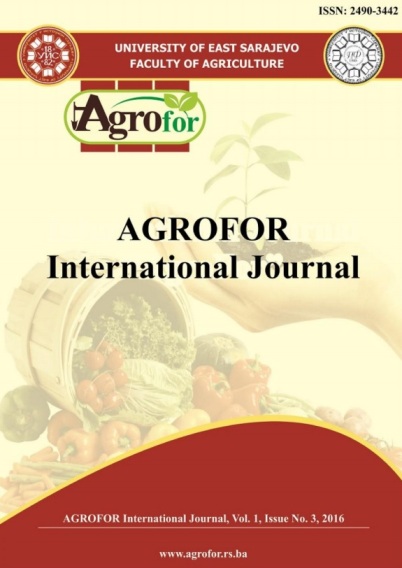OPTIMIZATION MODEL OF VEGETABLE PRODUCTION STRUCTURE IN SERBIA
DOI:
https://doi.org/10.7251/AGRENG1603104PAbstract
Indoor vegetable production, or production in greenhouses enables year-round
production, the combined off-season production, greater control of diseases and
pests, but also significantly greater production value compared to open field crop
production. The aim of this paper is to determine such a structure of vegetable
production in greenhouses that will realize the maximum financial result
considering various biotechnological, production, technological and market
constraints. In this context, model for optimization of vegetable production
structure in greenhouses was formulated, and at the same time, model analysis and
model solving was made using the method of linear programming and the software
package "LINDO". Model was analyzed in three variants, depending on the
selected optimality criterion: maximization of net income (variant I), maximization
of economics of production (variant II), minimum deviation from the extreme
values (variant III). The results show the optimal sowing - planting structure for all
three variants of defined model; the participation of certain groups of crops in the
overall sowing - planting structure; the required number of working hours in the
observed months of working peaks; that variant I achieves the highest net income
for defined limiting conditions (4.216.867 din); that variant II achieves the highest
economics of production (2,25), while variant I and variant III generate the same
economics of production (2,20).Moreover, variant I realized the greatest value
ofproduction (7.080.300 din), but also the highest variable (2.863.433 din) and total
costs (3.263.433 din). Published data of various experimental paperworks were
used for this analysis, as well as data from the accounting records of the farms and
data of Statistical Office of the Republic of Serbia.

